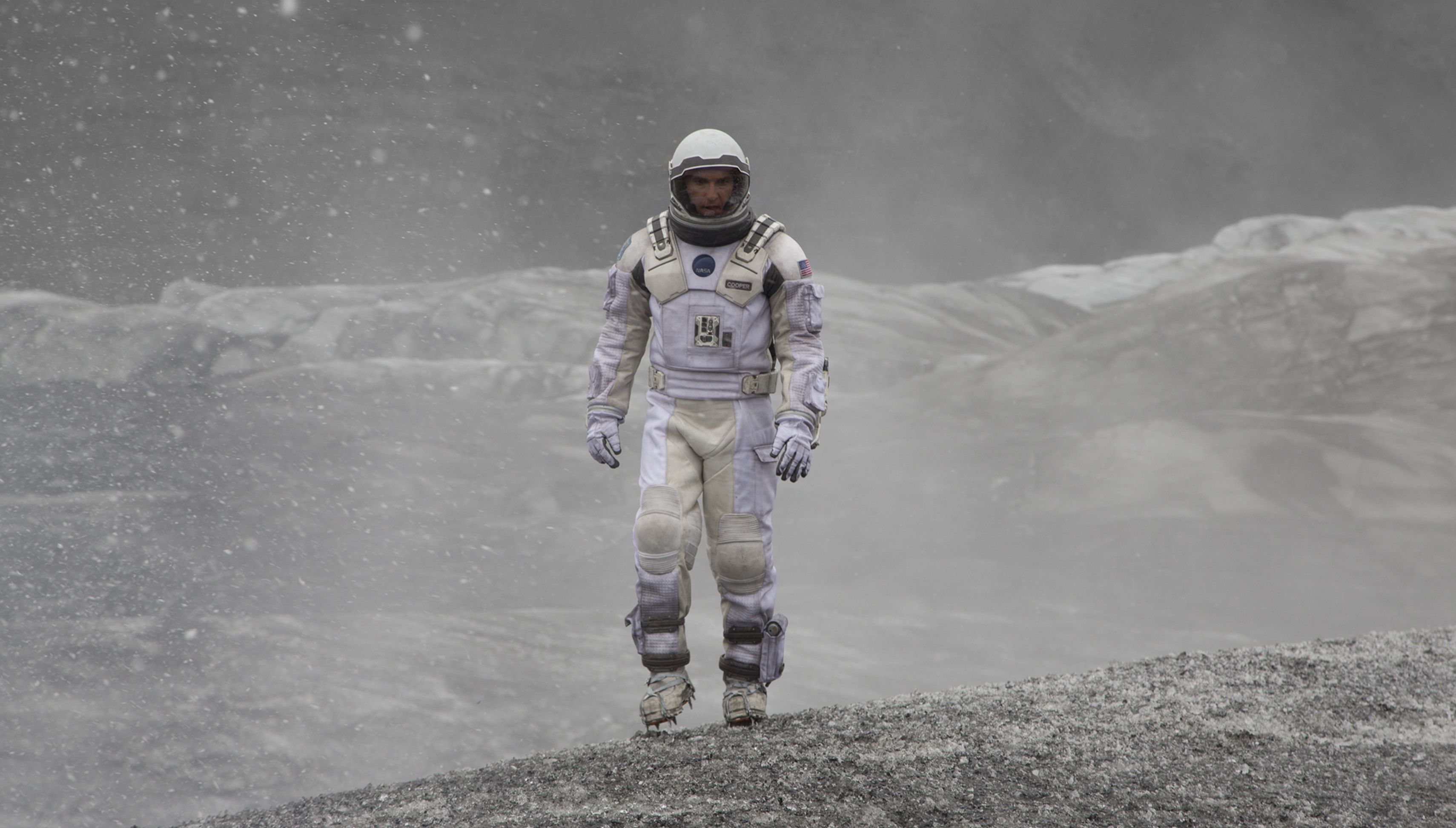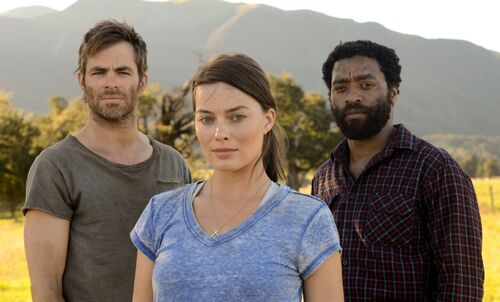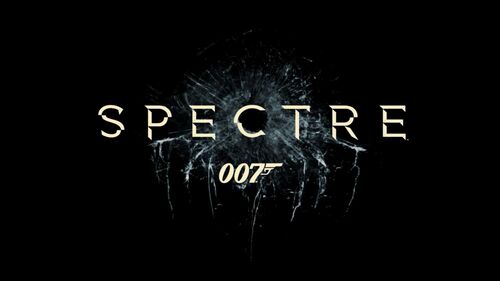
Interstellar
 Interstellar is a big movie taking on a big subject. In fact, you could call it almost biblical – the story of Noah, his ark and the flood. Except this time it’s Cooper, his space station and a disappearance of food. Christopher Nolan has never been shy of taking on epic subjects and delivering them in a mind-bending way, and for most of Interstellar you are swept along with the director, feeling genuinely excited about how wonderful sci-fi action films can be. The film is at times enthralling, exciting and overwhelming, but, annoyingly, peppered with cringe and superfluous emotion towards the end. The third act was always going to be the hardest one to pull off and unfortunately it leaves you with a sense of dissatisfaction.
Interstellar is a big movie taking on a big subject. In fact, you could call it almost biblical – the story of Noah, his ark and the flood. Except this time it’s Cooper, his space station and a disappearance of food. Christopher Nolan has never been shy of taking on epic subjects and delivering them in a mind-bending way, and for most of Interstellar you are swept along with the director, feeling genuinely excited about how wonderful sci-fi action films can be. The film is at times enthralling, exciting and overwhelming, but, annoyingly, peppered with cringe and superfluous emotion towards the end. The third act was always going to be the hardest one to pull off and unfortunately it leaves you with a sense of dissatisfaction.
The film opens up with scenes reminiscent of Steinbeck’s Grapes of Wrath of Guthrie’s Bound for Glory. The world is becoming more and more arid – a huge dustbowl is taking over and there is nowhere else to migrate to. Crops are failing and massive dust storms are sweeping the planet. We are never given an exact time, but it seems like the not too distant future. In an apparent swipe at present day consumerism, the grandfather of the central family (played by John Lithgow) laments the fact that in his day people were always wanting and creating new things and no one was happy with what they had. The scene is set to feel like the beginning of the end.
We are introduced to our protagonist, Cooper (played by Matthew McConaughey) and his family – his son, daughter and the aforementioned grandfather. They live on a farm and grow corn, but instantly we sense dissatisfaction in Cooper. He trained as an engineer, but is forced to grow food to help deal with the world’s shortage. Through a series of events Cooper is recruited by Nasa (in hiding because no one would tolerate spending on such frivolity) to pilot an expedition through a wormhole to find a new habitable land. The science is sketchy in places and apparently downright absurd in others (but perhaps not as absurd as Matthew McConaughey playing a man in his early 30s – the near future must be a hard life). However, that doesn’t take away from the jaw-dropping spectacle of the 2nd act – the outstanding panoramas and the frightening silence. Apparently in space no one can hear you scream… who knew?
You have to suspend disbelief for most of the second half of the film and that is okay – taking liberties with science in film is not exactly a new thing. However, it’s the overt sentimentalism that grates more than anything else. At one point (the fantastic) Anne Hathaway’s character, Brand, argues that perhaps they should not follow reason, but should instead put the hopes and aspirations of earthlings down to love. Genuinely, that happens. And she’s a scientist. In fact, she argues at one point that ‘we didn’t create love’ when, well… we pretty much did exactly that. One can’t help but feel that maybe Christopher Nolan was going through a weepy stage when making this film. Love continues to be the focus of the 3rd act in a very ‘love can conquer all’ way, so much so that I half expected there to be a scene involving an evil wizard being unable to kill a baby boy.
Interstellar is a really good film in lots of ways (great performances from McConaughey, Hathaway, Mackenzie Foy and John Lithgow is as Lithgowtastic as always), but the tail-end just doesn’t hold up as well as the rest of the film. I would like to imagine that the 3rd act was some kind of hallucination, but I doubt it. But it’s not let down because of some kind of pidgin science – it’s the all you need is love vibe that gets in the film’s way.
Find more of our content at www.podestrians.net
We produce a weekly filmcast. Subscribe on iTunes at:
https://itunes.apple.com/gb/podcast/podestrians-podcast/id920231768?mt=2


